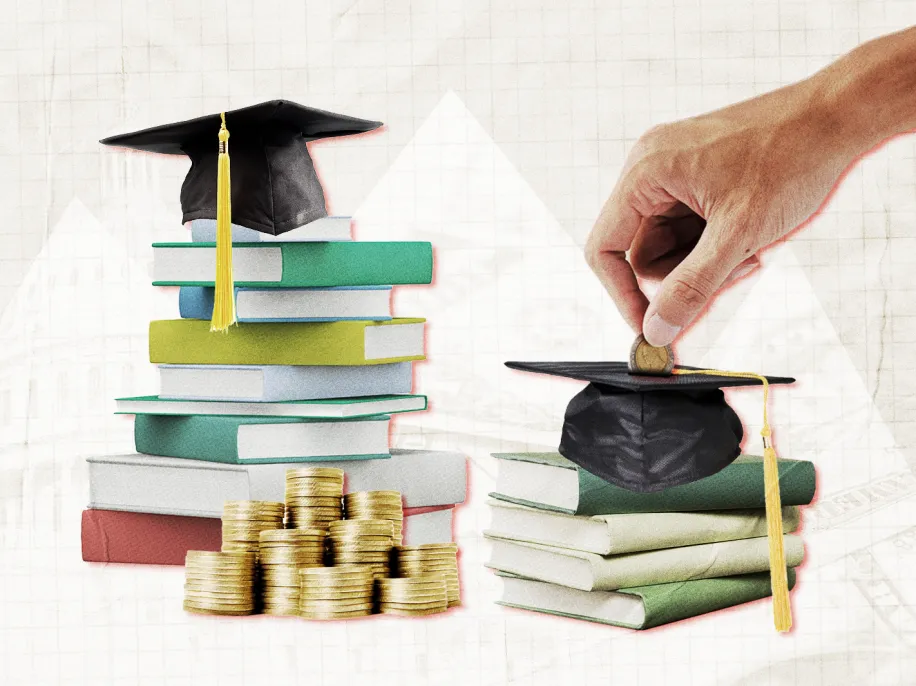

Ahead of the Budget next Tuesday, Treasurer Jim Chalmers has done a favour to three million Australians with HECS debts. To be unveiled next week, his decision is set to reduce the ever-growing burden of what’s owed to taxpayers by allowing the annual rise in a HECS debt to be linked to either the lower of the Consumer Price Index (CPI) or the Wage Price Index.
This comes as the CPI has pumped up these debts following inflation recently spiking over 7%. This decision is socially sensible and fair. It’s also great politics, with three million voters bound to love it. However, if these people have home loans, this act of niceness adds to the reasons why a growing number of economists are now calling for the RBA not to cut rates but instead raise them!
These calls will grow louder if the AFR’s headline today i.e., Big government spending to widen budget comes true in Dr Jim’s Budget. You see, the RBA has tried to screw the economy (and us) down with 13 interest rates rises. But if the Government keeps giving us ‘stuff’ and taxing us less, then the central bank will first delay rate cuts, but then might have to raise rates.
I’m in the camp that says no more rate rises are necessary. But if this unseen Budget next week is designed to ‘win friends and influence voters’, then the cost might be higher interest rates! I don’t like being wrong on economic forecasting but if I am, I know who to blame. Eventually everyone with home loans will too.
However, only a third of potential voters have home loans, so you can see why the Government will gamble that they can get away with charitable Budget decisions that could keep interest rates high.
But that’s not the full story, because Dr Jim’s niceness to ex-students with HECS debts and lower income taxpayers looking forward to tax cuts, could actually be a smart piece of economics.
You see, if our economy is actually slowing down faster than it appears right now because of those13 rate rises, then stimulus from the Budget could save us from a recession. That’s when Dr Jim could be hailed as a genius, or son of his hero Paul Keating.
That will be an economic drama that will play out between now and the expected May election next year. Of course, if the economy isn’t slowing down much and rates are on the way up, we could see an early election.
In fact, if we do see an early poll, I’d say it would be to avoid the implications of this tipped generous Budget.
Economist Chris Richardson told the AFR: “For every $7 billion extra in spending over the coming year, the RBA has to add another rate rise of a quarter of a per cent.”
The Treasurer wants to pull off the double play of helping inflation down and easing the cost of living burden. This will be the basis of assessing his Budget. But right now, the leaks on what he’s planning don’t scream that he’s about to achieve his twin goals.
Ominously, Richardson says the overall tax burden will have to rise to make this Budget a positive for the RBA’s ‘fight inflation’ job. So, the question is this: who’s going to be slugged in next week’s Budget? I guess it will be wealthier Aussies not famous for voting Labor!
For a summary of the HECS changes, this is how the ABC saw it:
Because the change will be backdated, there’ll be refunds on the HECS increase linked to the 7.1% increase in the CPI for last year’s indexation increase. The ABC provided this example to show how those with HECS debts will benefit:
“Instead of another dreaded rise, students will now receive an indexation credit. Last year's indexation rise of 7.1 per cent will be lowered to 3.2 per cent under the new policy. For a student with the average debt of $26,494 that means an indexation credit of about $1,200 for the last two years if legislation reforming HECS is passed after the budget.”
What voter wouldn’t like a $1,200 gift from the Treasurer? Well, I guess if they have a big home loan and rates rise, they might be less a fan of Dr Jim’s idea. But that’s politics.